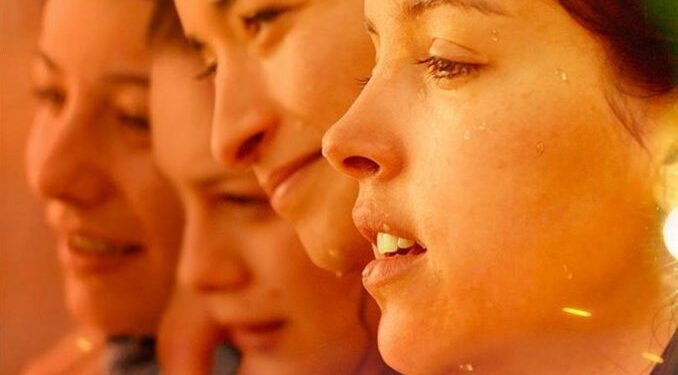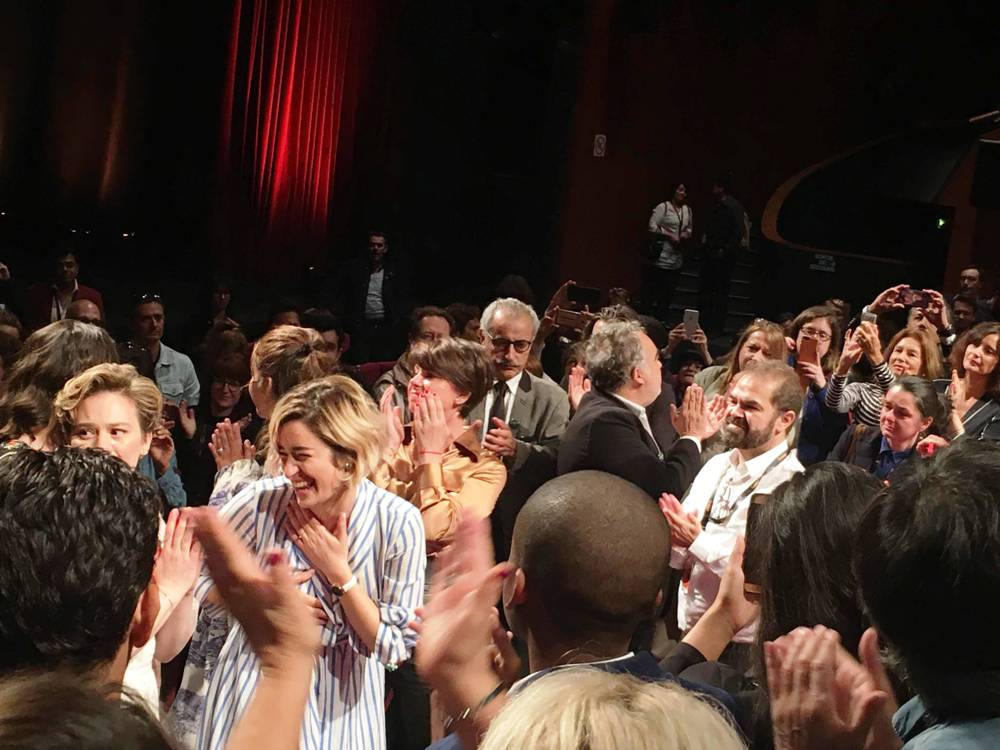It has been three days since the Cannes Festival started and all agree that the 2019 selection is exceptional. Every day, very beautiful films are scheduled. But yesterday, the one that has the most move is Papicha Directed by Mounia Meddour, whose projection was followed by a good ten minutes of standing ovation. Several spectators were so moved that they were still crying after the end credits.
Papicha – Standing Ovation
Papichafirst feature film by young Mounia Meddour, is in competition in the A certain look section and also contributes to the Golden Camera which rewards the best first film.
Synopsis: Algeria, 90s. Nedjma, 18, a student living in the University City of Algiers, dreams of becoming a stylist. At nightfall, she sneaks through the mesh of the city’s fence with her best friends to reach the nightclub where she sells her creations to the “Papichas”, young Algerian girls. The country’s political and social situation continues to deteriorate. Refusing this fatality, Nedjma decides to organize a fashion show, against and against everything.
Freely inspired by real facts, Papicha Through the history of young students residing in a university city, tells the struggle of Algerian women during the black decade, faced with the radicalization of society and the rise of Islamism.
Papicha is a very beautiful film, very moving, very well constructed. It gradually advances and shows the evolution and transformation of society. The pace is maintained until the end.
At the start of the film, the students were relatively free and managed to leave the university city easily. They had to just cross a fence and weld the goalkeeper. But as the film progresses, they have difficulties. We even built a concrete wall to prevent them from going out. We make them alive.
Their body is also gradually imprisoned. Posters advising the veil and praising its merits, are glued first outside the university, then they will decorate the interior walls, the classrooms, the refectory and even follow young women wherever they go. They must hide their bodies, they are told, to be pure and good Muslims.
These Papichas (term used during the 1990s to designate the young emancipated, resourceful, free, dynamic women, etc.) will solidarize with each other to try to overcome all the difficulties they encounter.
Faced with death and terrorism, they will lead a fight: organize a fashion show within the university, but it is actually a fight to defend their freedoms and even their lives. The parade will be done using haik. The director explained that this choice is not trivial. During colonization, women passed weapons under their hate. They were already fighting against the foreign occupant, they therefore continue this fight against obscurantism.
Another important theme is addressed by the film: belonging to a country. Nedjma loves her country and says it. She doesn’t want to leave him. Yet many of them leave. They no longer see a future in Algeria and dream of going elsewhere. But Nedjma stubbornly refuses to do so. Her country has changed, she no longer recognizes him, she no longer recognizes the people around her, violence is everywhere, despair too, but she hooks there. She clings to her land. She has set up there. It belongs to him.
Is the black decade behind Algeria? Have the lessons have learned? We will know in a few years.
As Tunisian, this film moved me a lot. What is the past of Algeria seems to me to be the present of Tunisia, even if the radicalization of society is not as violent. In reality, in Tunisia, we may be in the case of the fable of the cooked frog. And tomorrow, it may be too late to react …
Neïla Driss

Read on the same subject:









